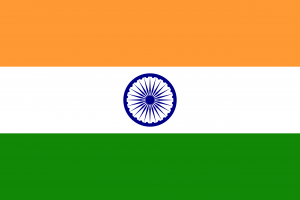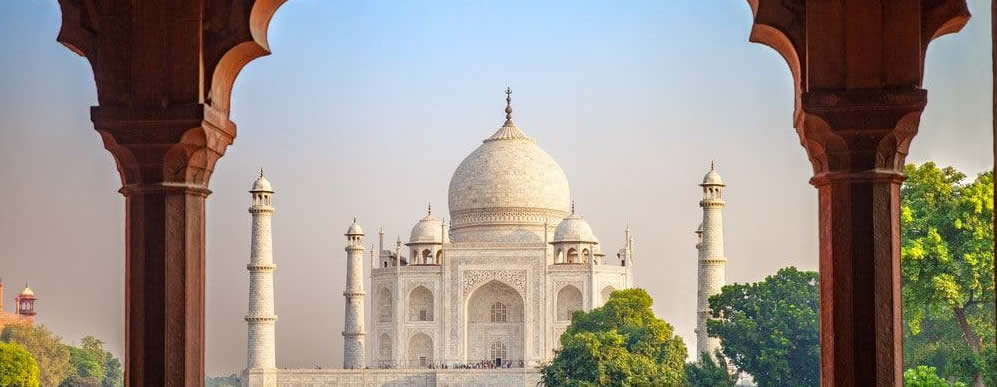Language/Hindi/Culture/India-Timeline
Jump to navigation
Jump to search
Rate this lesson:
Historical Timeline for India - A chronology of key events
Interesting Facts about India[edit | edit source]
- Country: INDIA
- Capital: Delhi
- Continent: Asia
- Currency: Rupee
1. India has 22 recognized languages.
2. Total of 121 languages.
3. Bollywood produces between 1,500-2,000 feature films a year.
3. India is the second-largest market of newspapers in the world- over 100,000 publications and 1300 million readers.
4. The first rocket in India was transported on a bicycle in Kerala!
5. With 7,172 stations, the Indian rail network is the largest in Asia – carrying a whopping 23 million passengers daily in 12, 617 trains.
6..World's Only Floating Post Office in Dal Lake is in Srinagar.
7. India is 2nd largest English-speaking country.
Source[edit source]
- Content Research - Ms Harshali Dhatavkar
➡ To LEARN & SHARE interesting experiences: Join the WhatsApp group
India Timeline - Recent history of India[edit | edit source]
- 1947-1990 "A distance from the world: the Indian way"
- 1947: Indian Independence Act 1947 by British Raj. Partition of India and Pakistan becomes an independent state on 14 August 1947. Freedom from British Raj. Hundreds of thousands die in widespread communal bloodshed after partition, continuing to 1948.
- 1948: Mahatma Gandhi is assassinated by Nathuram Godse. War with Pakistan over disputed territory of Kashmir. Telangana and other princely states are integrated into Indian union.
- 1950: January 26, India became a republic. Adoption and entry into force of the Constitution.
- 1951: Beginning of the first five-year plan; first general election.
- 1955: The Congress Party makes a socialist society its declared goal; the second five-year plan favors industry. In April, Afro-Asian conference in with the inclusion of in the non-aligned countries
- 1956: Redistribution of the States of the according to linguistic criteria.
- 1962: October, November: Sino-Indian war.
- 1964: Death of Nehru; Lal Bahadur Sastri replaces him. 1965: Indo-Pakistani clashes.
- 1966: After the death of Lal Bahadur Sastri, Indira Gandhi becomes Prime Minister; serious agricultural crisis (widespread pollution by pesticides, massive loss of biodiversity, soil degradation and erosion which lead to rural exodus and the explosion of slums ...), launch of the "green revolution".
- 1969: 14 banks nationalized by presidential decree; split in Congress.
- 1971: Third war with Pakistan, culminating in the creation of Bangladesh. Twenty-year treaty of friendship signed with Soviet Union.
- 1974: conducts first nuclear test.
- 1975: Annexation of . Invalidation of the election of Indira Gandhi. Declaration of a state of emergency (June 26).
- 1977: End of state of emergency (March 21) and general elections. Congress is defeated by the Janata Party.
- 1979: The Janata Party splits. Chaudhary Charan Singh becomes Prime Minister.
- 1980: Elections bring Indira Gandhi back to power.
- 1981: Very large IMF loan granted to .
- 1983: N. T. Rama Rao NTR's nine-month-old Telugu Desam assumes power in AP becoming a challenger post Loknayak Jayprakash Narayan against Indira Gandhi. India won World Cup for the first time, in one day international Cricket led by Kapil Dev.
- 1984: October 31: Indira Gandhi is assassinated by Sikh bodyguards. Wave of violence against Sikhs. November 1: Rajiv Gandhi becomes Prime Minister.
- 1988: Rajiv Gandhi's official trip to . Bringing together of the two opposing Asian giants since the start of the Sino-Indian war in 1962.
- 1990: The government imposes an emergency regime on Jammu-Kashmir.
- 1991-2016: and the World
- 1991: Rajiv Gandhi is assassinated in the middle of the electoral campaign by Tamil extremists. P.V. Nasarhimha Rao, member of Congress, becomes Prime Minister. 22% devaluation of the rupee against the dollar; massive aid from the IMF; announcement of the liberal turn, prepared by the Minister of Finance, Mr. Singh.
- 1992: and establish diplomatic relations. Hindu extremists demolish Ayodhya mosque; clashes between Hindus and Muslims in the country.
- 1994: Military cooperation agreement with the Russia of B. Yeltsin.
- 1995: becomes a partner of ASEAN, an association of Southeast Asian nations.
- 1998: The elections make the BJP (Bharatiya Janata Party the "party of the Indian people" which is a right-wing Hindu nationalist party) the first party; Atal Bihari Vajpayee becomes Prime Minister of a government backed by a coalition of 13 parties. First Indian nuclear tests since the "peaceful" test of 1974; immediately imitates them.
- 1999: International sanctions do not dissuade the two countries from experimenting with long-range missiles; Kargil War between and .
- 2000: Official visit of Bill Clinton. Annual summit established between and the European Union.
- 2001: Attack against the Parliament of New Delhi which protests with : strong tension between the two countries which mobilize their armies.
- 2002: Abdul Kalam, Muslim physicist, father of the Indian nuclear program, is elected President of the Republic. Inter-communal violence in : more than 2000 dead, mostly Muslims.
- 2003: At least 50 people are killed in two simultaneous bomb blasts in Bombay. November, India matches Pakistan's declaration of a Kashmir ceasefire. December, India, Pakistan agree to resume direct air links and to allow overflights.
- 2004: Resumption of the Indo-Pakistani dialogue. World Social Forum in Mumbaï. Legislative elections: victory for the coalition led by Congress. Mr. Singh becomes Prime Minister.
- 2005: Strategic partnership announced between and . Bus service begins between Pakistani and Indian parts of . 10-year strategic partnership between and the : the nuclear component is essential.
- 2006: receives the French (J. Chirac) American (G.W. Bush) and Chinese (Hu Jintao) presidents. The Anglo-Indian group Mittal acquires Arcelor.
- 2007: February: Attack on "Friendship Train" New Delhi-Lahore Express kills 68. This does not call into question the peace process, which reached an agreement in March aimed at reducing the risk of accidents linked to their respective nuclear arsenals. The two countries are starting a new cycle of "global dialogue".
- July: United Progressive Alliance candidate Pratibha Devisingh Patil becomes the first woman to be elected President of the Republic.
- 2008: July: Anti-Muslim attacks claimed by the Indian Mujahedin organization kill at least 49 people in .
- November: Armed Islamist terrorists claiming to be an unknown group, the mujahedin, attack various sites.
- December: In Muzaffarabad, in Azad Kashmir, the Pakistani army carries out an operation against a camp of Jamaat ud-Dawa, accused of being responsible for the deadly attacks of November.
- 2009: June: Election to the presidency of the Parliament of Meira Kumar, member of the community of the untouchables.
- 2012: July: Election of Pranab Mukherjee as President of the Republic.
- December: The gang rape of a student on a bus sparks violent protests across the country.
- 2013: September: The court in Saket, a district of New Delhi, sentences four of the five perpetrators of the December 2012 gang rape to death.
- 2014: April: Victory for the Hindu nationalists in the legislative elections, with Narendra Damodardas Modi as Prime Minister since.
- October: The Nobel Peace Prize is awarded to Kailash Satyarthi, Indian leader of an NGO fighting against child labor.
- 2015: June: A border agreement between the Prime Ministers of and settles the question of the hundred or so small enclaves that each country had on the territory of the other.
- September-October: Assassinations of Muslims perpetrated in the name of the protection of the cow (which continue in 2016).
Source[edit | edit source]
World Timelines[edit source]
Other Lessons[edit | edit source]
- Visual Arts : Ajanta Paintings
- Harvesting Festival
- Vegetarian Food in India
- Pranayama : Way of Life
- Ayurveda : Introduction
- Festivals
- Rivers
- Schools of Philosophy in the Ancient India
- Yoga
- Linguistic Diversity
- Drinking Alcohol in India
- Marriage in India


